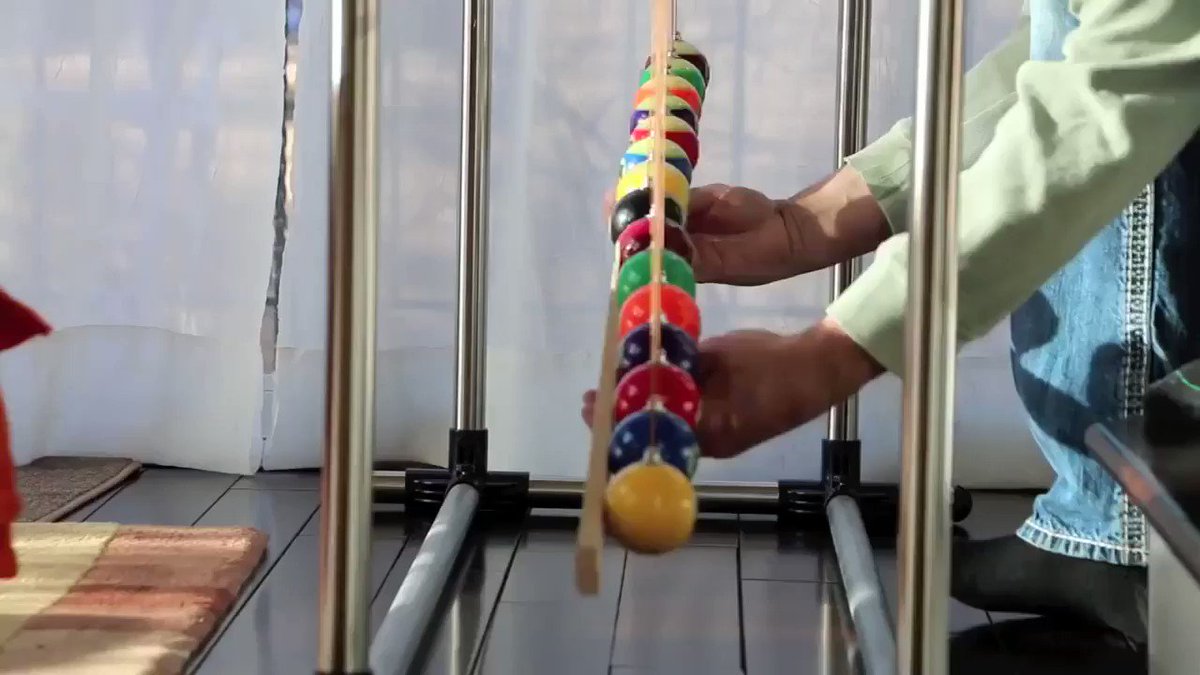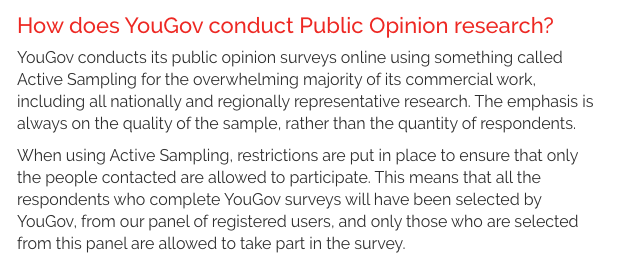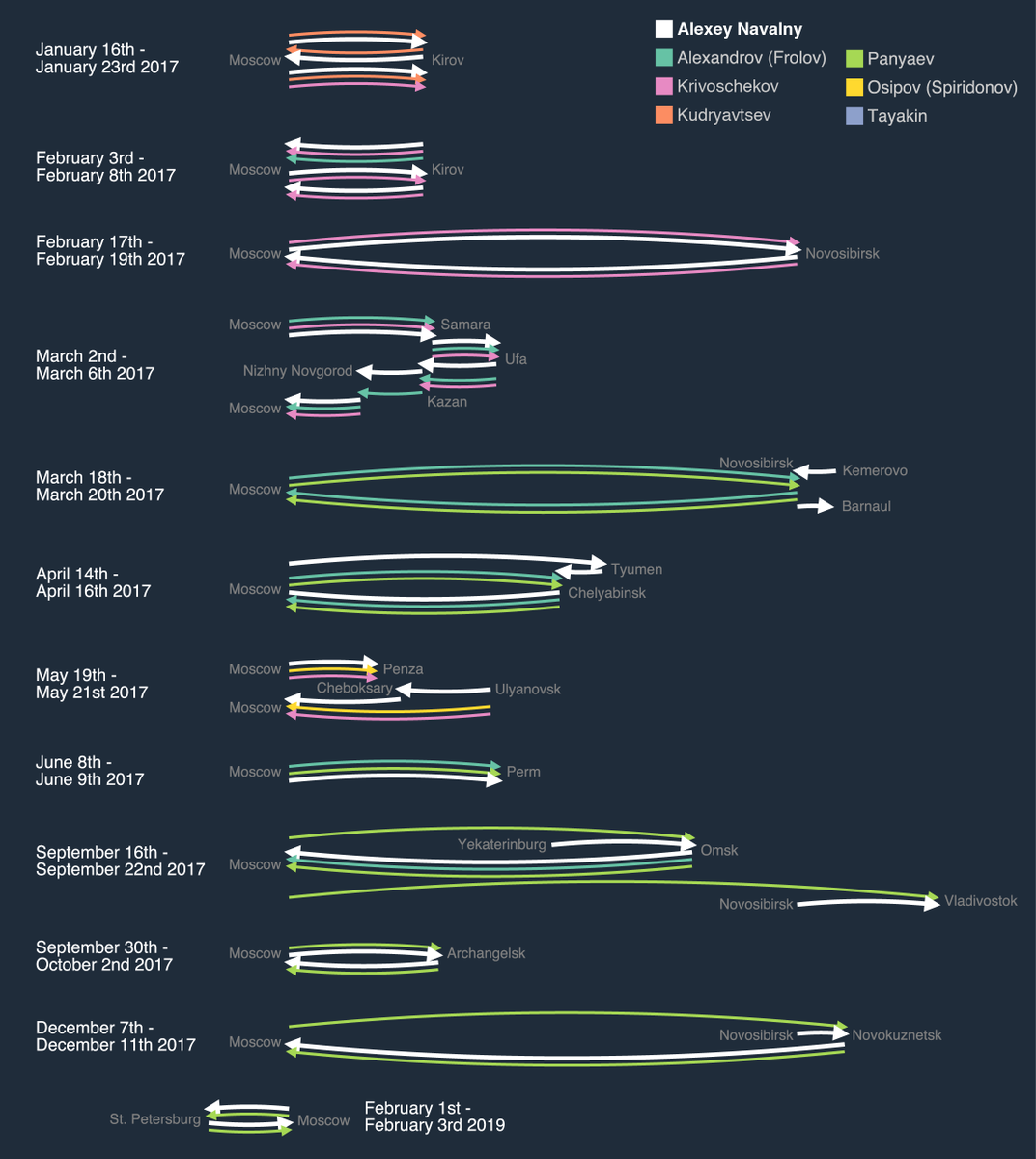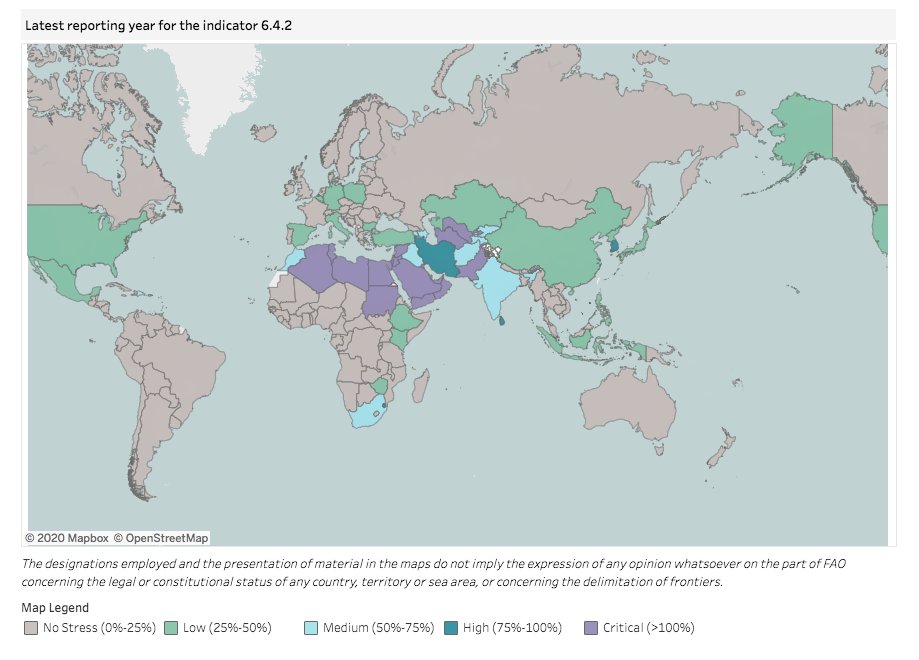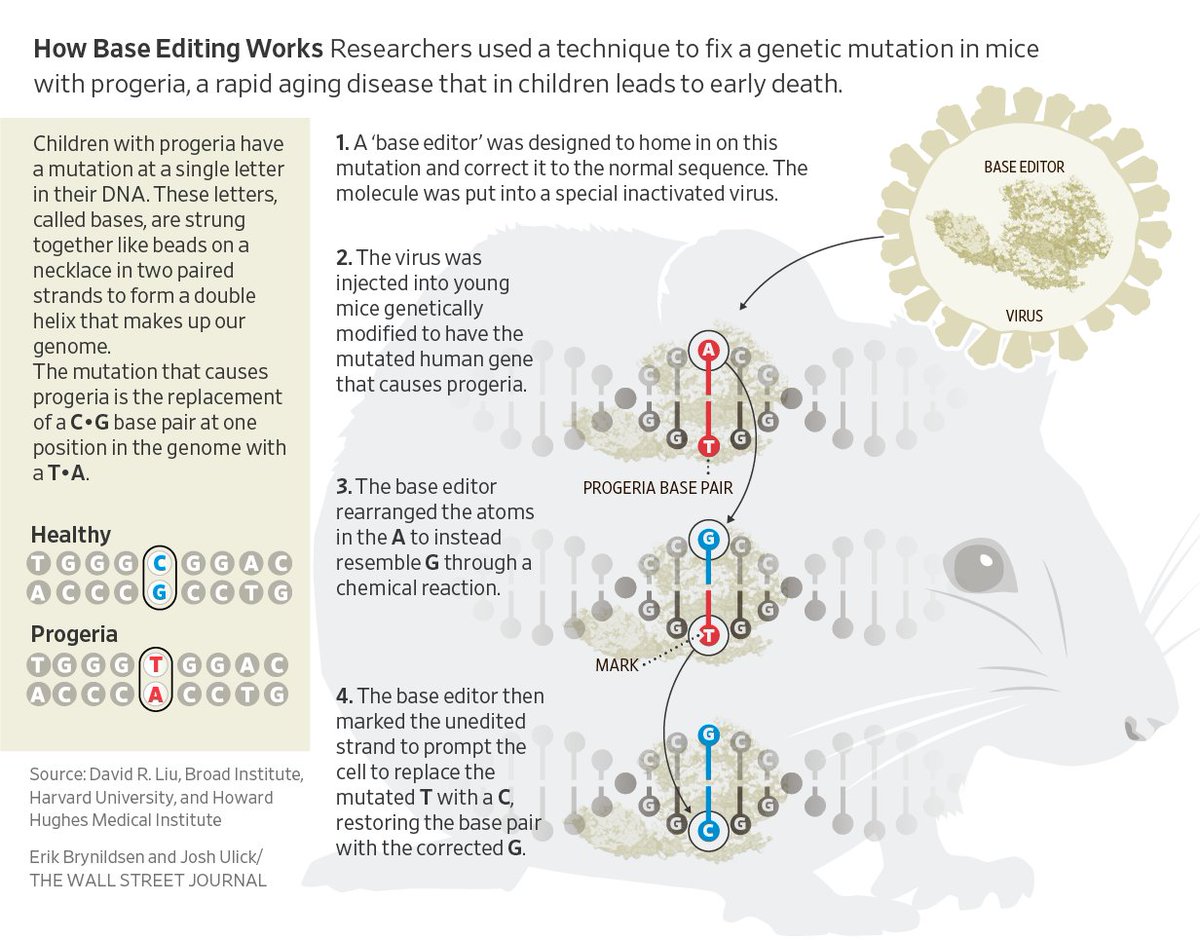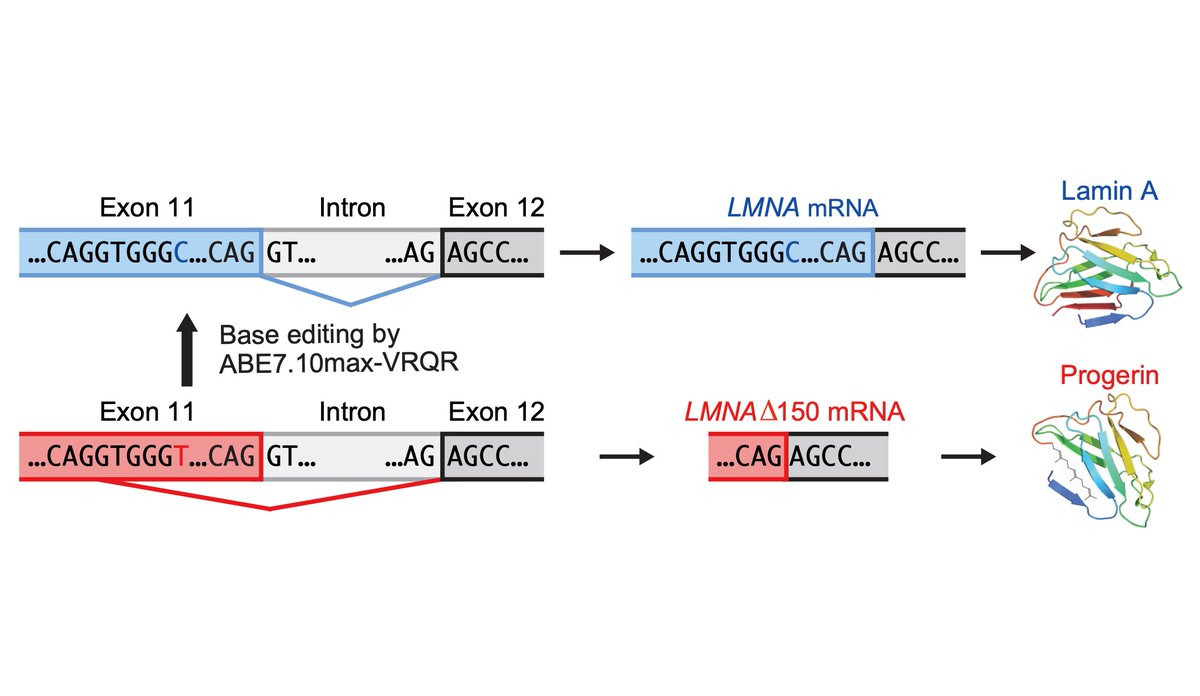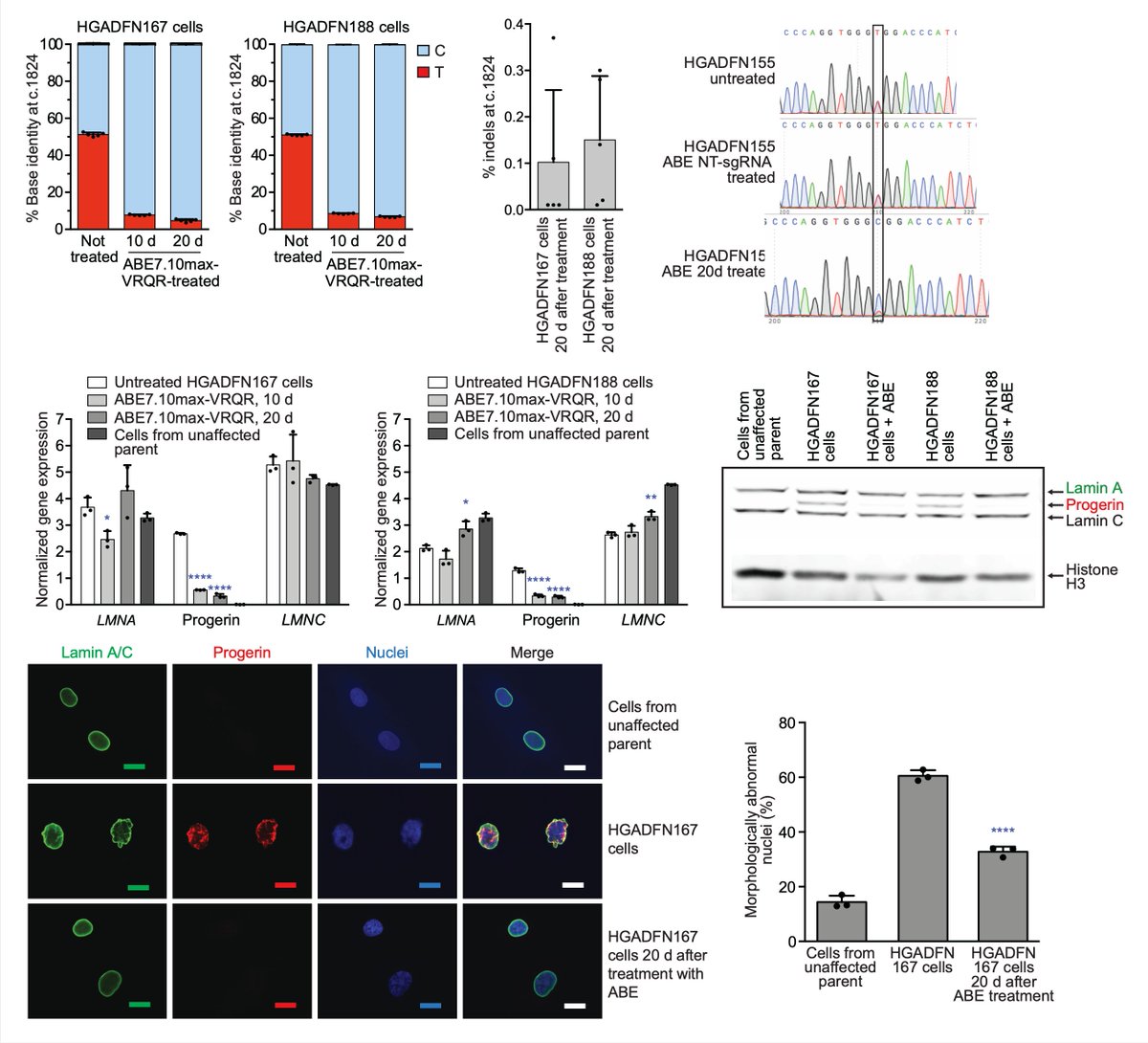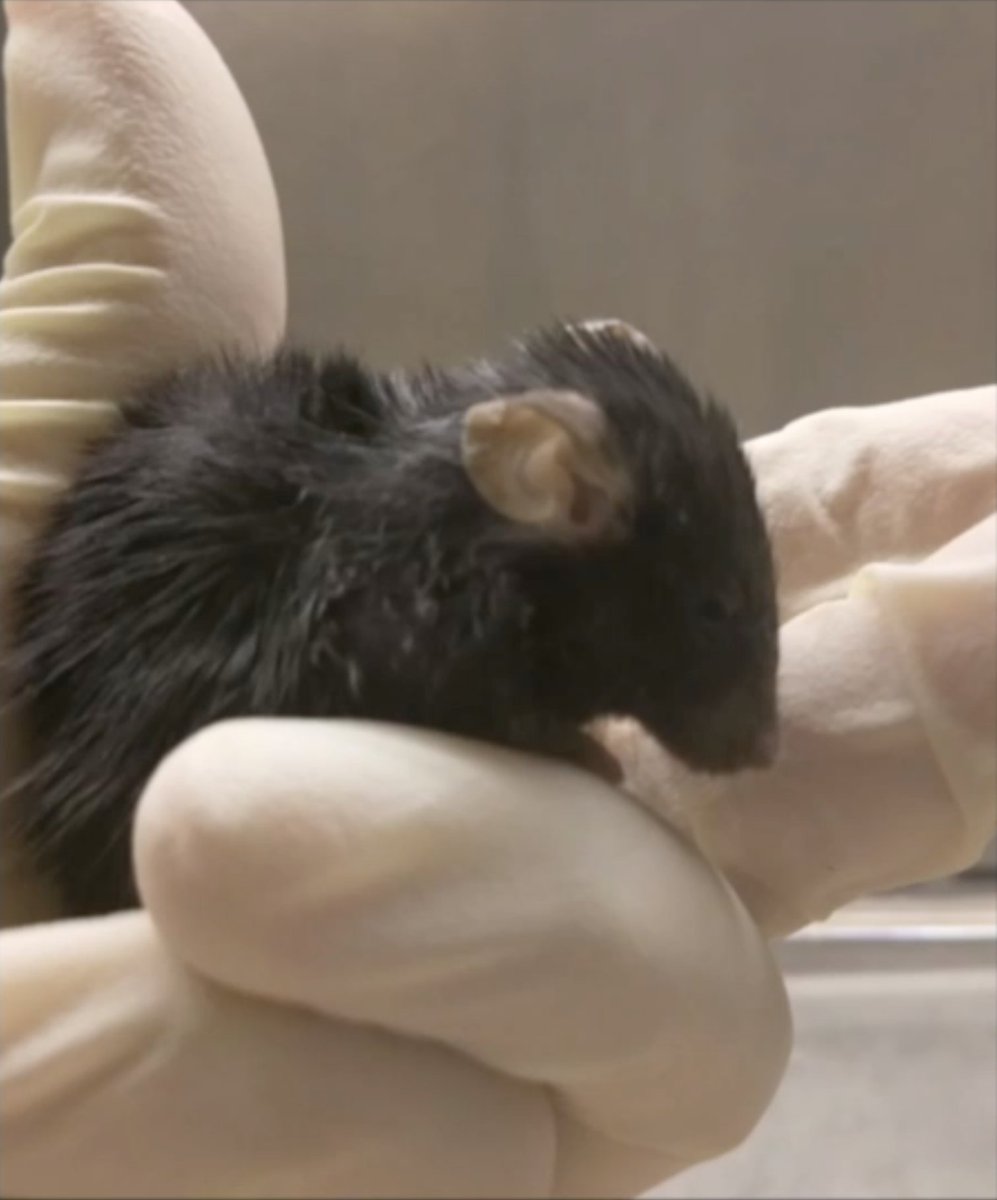Categories Science
7 days
30 days
All time
Recent
Popular
It was great to talk about reproducible workflows for @riotscienceclub @riotscience_wlv. You can watch the recording below, but if you don't want to listen to me talk for 40 minutes, I thought I would summarise my talk in a thread:
My inspiration was making open science accessible. I wanted to outline the mistakes I've made along the way so people would feel empowered to give it a go. Increased accountability is seen as a barrier to adopting open science practices as an ECR
It also comes across as all or nothing. You are either fully open science or your research won't get anywhere. However, that can be quite intimidating, so I wanted to emphasise this incremental approach to adapting your workflow
There are two sides to why you should work towards reproducibility. The first is communal. It's going to help the field if you or someone else can reproduce your whole pipeline.

There is also the selfish element of it's just going to help you do your work. If you can't remember what your work means after a lunch break, you're not going to remember months or years down the line
Thank you again @JamesEBartlett for a fantastic talk (with a really nice personal touch) on reproducible workflows!
— RIOT Science Club Wolverhampton (@riotscience_wlv) February 16, 2021
Thanks especially for the co-leads @IMLahart for co-hosting and @DrManiBhogal for nabbing James!
Slides: https://t.co/CNqxzOhch1
Video: https://t.co/YjHEHuRJlz
My inspiration was making open science accessible. I wanted to outline the mistakes I've made along the way so people would feel empowered to give it a go. Increased accountability is seen as a barrier to adopting open science practices as an ECR
It also comes across as all or nothing. You are either fully open science or your research won't get anywhere. However, that can be quite intimidating, so I wanted to emphasise this incremental approach to adapting your workflow
There are two sides to why you should work towards reproducibility. The first is communal. It's going to help the field if you or someone else can reproduce your whole pipeline.

There is also the selfish element of it's just going to help you do your work. If you can't remember what your work means after a lunch break, you're not going to remember months or years down the line
Why are lunch breaks important for #code?
— Dr Rebecca Hirst (@HirstRj) February 11, 2021
If you can't remember what your variable names refer to after lunch, you sure as hell won't remember in 3 months.
What are the classics of the "Science of Science" or "Meta Science"? If you were teaching a class on the subject, what would go in the syllabus?
Here's a (very disorganized and incomplete) handful of suggestions, which I may add to. Suggestions welcome, especially if you've dug into relevant literatures.
1. The already classic "Estimating the reproducibility of
psychological science" from the Open Science Collaboration of @BrianNosek et al. https://t.co/yjGczLZ6Je
(Look at that abstract, wow!)
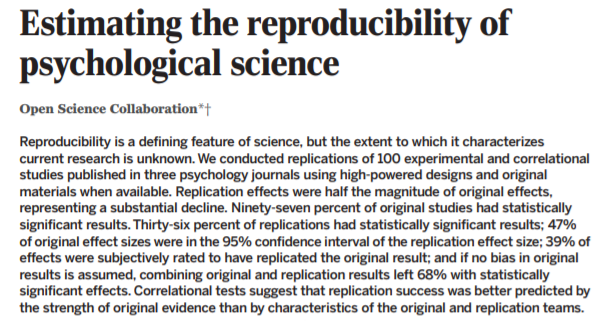
Many people had pointed out problems with standard statistical methods, going back decades (what are the best refs?). But this paper was a sledgehammer, making it impossible to ignore the question: what, if anything, were we actually learning from all those statistical studies?
2. Dean Keith Simonton's book "Creativity in Science: Chance, Logic, Genius, and Zeitgeist". If an essentially scientometric book could be described as a fun romp through science & creativity, this would be it
Here's a (very disorganized and incomplete) handful of suggestions, which I may add to. Suggestions welcome, especially if you've dug into relevant literatures.
1. The already classic "Estimating the reproducibility of
psychological science" from the Open Science Collaboration of @BrianNosek et al. https://t.co/yjGczLZ6Je
(Look at that abstract, wow!)

Many people had pointed out problems with standard statistical methods, going back decades (what are the best refs?). But this paper was a sledgehammer, making it impossible to ignore the question: what, if anything, were we actually learning from all those statistical studies?
2. Dean Keith Simonton's book "Creativity in Science: Chance, Logic, Genius, and Zeitgeist". If an essentially scientometric book could be described as a fun romp through science & creativity, this would be it
Now, a more technical tweet thread to give updates on the science - which is moving fast. Again, I recommend following @arambaut, @firefoxx66, @EBIgoldman, @The_Soup_Dragon, @pathogenomenick and @jcbarret along with others to stay on the cutting edge of this
Most important has been the paper by the @CovidGenomicsUK consortium on the new variant, here:
(This is super-rapid pre-print on https://t.co/PHmxAcVUoB - other people will pick over this no doubt - but the openness of the data and quality of analysis from this group means this is super solid, and any updates on discussion likely to happen fast)
Two key take aways from this paper for me:
1. There is a big jump in number of changes - too big to be explainable with the natural progression over time. @arambaut and colleagues point out that similar big jumps have happened in immunocompromised patients treated via convalescent plasma + drugs
Most important has been the paper by the @CovidGenomicsUK consortium on the new variant, here:
(This is super-rapid pre-print on https://t.co/PHmxAcVUoB - other people will pick over this no doubt - but the openness of the data and quality of analysis from this group means this is super solid, and any updates on discussion likely to happen fast)
Two key take aways from this paper for me:
1. There is a big jump in number of changes - too big to be explainable with the natural progression over time. @arambaut and colleagues point out that similar big jumps have happened in immunocompromised patients treated via convalescent plasma + drugs
In the reductionistic approach that dominates science, we've tried to categorize even our own physiology into sperate systems such as the immune system or the metabolic system. A number of beautiful papers show that things are not so segmented as we might think. A thread.
1/
Already almost a decade ago, a brilliant paper in Nature showed that there is crosstalk between the gut microbiome, gut epithelial cells, and immune cells. Moreover, it showed that epithelial cells can take over the immune cell
Than there is this work of art:
https://t.co/O38Gm3P1Nu
The author argues that the immune and metabolic system are likely coevolved and demonstrates that cytokines in fact also act as metabolic hormones. This explains the low-grade inflammation associated with e.g. diabetes.
3/
A quote:
"The evolutionary advantages of a strong defence system
are obvious [...] As a strong immune response is dependent on energy sources, one can also argue that the integration of these systems and their cooperation [...] would be highly advantageous."
4/
"From this perspective, an intriguing way to think about this paradigm would be to envision immune mediators, such as cytokines,
as metabolic hormones. In fact, this aspect of immunometabolism is
extremely well-conserved among organisms"
5/
1/
Already almost a decade ago, a brilliant paper in Nature showed that there is crosstalk between the gut microbiome, gut epithelial cells, and immune cells. Moreover, it showed that epithelial cells can take over the immune cell
Than there is this work of art:
https://t.co/O38Gm3P1Nu
The author argues that the immune and metabolic system are likely coevolved and demonstrates that cytokines in fact also act as metabolic hormones. This explains the low-grade inflammation associated with e.g. diabetes.
3/
A quote:
"The evolutionary advantages of a strong defence system
are obvious [...] As a strong immune response is dependent on energy sources, one can also argue that the integration of these systems and their cooperation [...] would be highly advantageous."
4/
"From this perspective, an intriguing way to think about this paradigm would be to envision immune mediators, such as cytokines,
as metabolic hormones. In fact, this aspect of immunometabolism is
extremely well-conserved among organisms"
5/
Sorry, Dr. Jha, but you shouldn't confuse medical care with the scientific enterprise. Although the 2 are commonly conflated, they are really distinct. 1/
The goal of science is to acquire knowledge. The goal of medicine is to help the sick. That's a fundamental distinction.
Also, scientists stand apart from their subject matter--as distantly as possible. Physicians, on the contrary, are in "a relationship" with patients. 2/
Of course, medical care should rely on scientific knowledge, but that means that science should be at the service of the patient-physician relationship, not the other way around! /3
Also, scientific knowledge can never be the ultimate arbiter of medical decisions.
First, scientific knowledge is often limited or provisional, especially with a new disease.
Second, for every patient there are myriad circumstances that influence a medical decision. /3
Third, even if excellent scientific knowledge is present, the physician must always judge how it applies to the patient, or whether it applies at all.
Fourth--and most pertinent here--one cannot narrowly limit the scientific knowledge to only RCTs as you do in your statement. /4
The hearings are meant as a questioning of the scientific process
— Ashish K. Jha, MD, MPH (@ashishkjha) December 7, 2020
To sew doubt on what we know and how we know it
So a group of us organized a response, which we just posted on our website
It isn't pro or anti hydroxy
Its about the scientific method and why it matters
2/3
The goal of science is to acquire knowledge. The goal of medicine is to help the sick. That's a fundamental distinction.
Also, scientists stand apart from their subject matter--as distantly as possible. Physicians, on the contrary, are in "a relationship" with patients. 2/
Of course, medical care should rely on scientific knowledge, but that means that science should be at the service of the patient-physician relationship, not the other way around! /3
Also, scientific knowledge can never be the ultimate arbiter of medical decisions.
First, scientific knowledge is often limited or provisional, especially with a new disease.
Second, for every patient there are myriad circumstances that influence a medical decision. /3
Third, even if excellent scientific knowledge is present, the physician must always judge how it applies to the patient, or whether it applies at all.
Fourth--and most pertinent here--one cannot narrowly limit the scientific knowledge to only RCTs as you do in your statement. /4
https://t.co/uWmEqLo2Hs
THE MILGRAM EXPERIMENTS
"Milgram (1963) examined justifications for acts of genocide offered by those accused at the World War 2, Nuremberg War trials. Their defence often was based on "obedience", they were just following orders from their superiors."

"Milgram (1963) wanted to investigate whether Germans were particularly obedient to authority figures as this was a common explanation for the Nazi killings in World War II."
https://t.co/HzjxIr5KWN
https://t.co/Pqd1v2giaH

"-Milgram (1963) was interested in researching how far people would go in obeying an instruction if it involved harming another person. "
THE MILGRAM EXPERIMENTS
"Milgram (1963) examined justifications for acts of genocide offered by those accused at the World War 2, Nuremberg War trials. Their defence often was based on "obedience", they were just following orders from their superiors."

"Milgram (1963) wanted to investigate whether Germans were particularly obedient to authority figures as this was a common explanation for the Nazi killings in World War II."
https://t.co/HzjxIr5KWN
https://t.co/Pqd1v2giaH

"-Milgram (1963) was interested in researching how far people would go in obeying an instruction if it involved harming another person. "




















